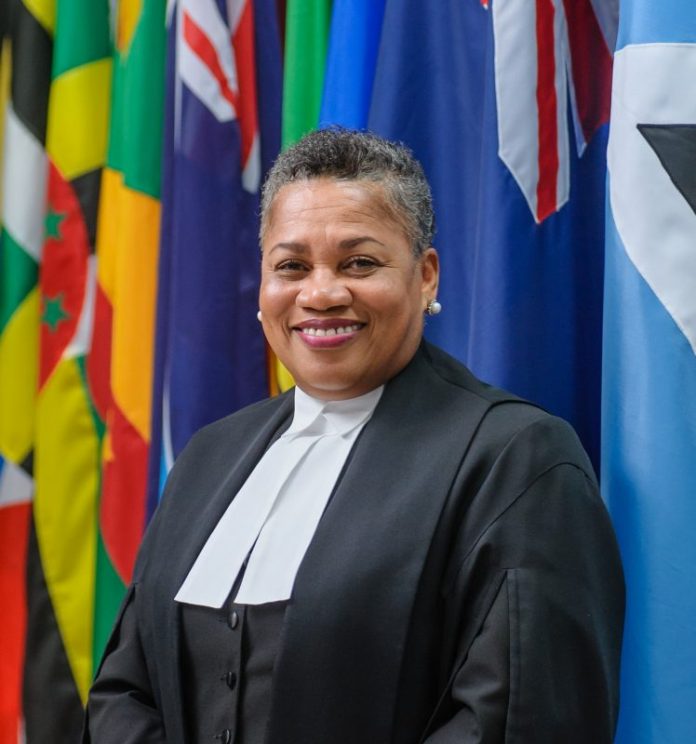
Seven months after hearing an appeal in a “Treating case” and reserving its decision, judges of the Eastern Caribbean Supreme Court (ECSC) will on Thursday, May 28, 2020 in Antigua deliver its decision in the very controversial and political matter.
The High Court had ruled in favor of the government in a matter which goes back to the 2014 general elections in Dominica.
Mervin John Baptiste, Antoine Defoe, and Edincot St. Valle filed criminal complaints against the candidates of the Dominica Labour Party (DLP) claiming that they were involved in treating in the run-up to the election.
In his complaint, John Baptiste alleged that government ministers worked together to “corruptly, directly and/or indirectly influence the results” of the 2014 poll.
He pointed to two free concerts, one featuring three-time Grammy Award winner and international gospel star, Donny McClurkin, and the other by Jamaican Reggae group, Morgan Heritage, that the DLP allegedly used to “corruptly influence” the outcome of the election.
He said this was “in contravention of Section 56 (a) of the House of Assembly Elections Act which deals with treating. All 15 elected members of the DLP were named in the complaint.
But lawyers for the DLP headed by Anthony Astaphan SC filed for judicial review challenging among other things the validity of the summons.
In her judgment, High Court Judge, Bernie Stephenson said the magistrate who signed the summons “erred in law”.
“The interveners, cannot in the circumstances of this case try to circumvent the requirements of the Constitution of Dominica and the ( House of Assembly Elections Act) HOAE Act by seeking to file complaints against the Claimants in the Magistrate’s Court and charging them for the offense of treating,” the judge wrote.
“I am satisfied that the jurisdiction to question elections or the jurisdiction to question the Constitution of the House of Assembly lies solely in the High Court and therefore the Learned Magistrate acted in excess of his jurisdiction when he signed the complaints, thus his actions are therefore liable to be quashed”.
That matter was appealed and Cara Shillingford represented the appellants (Mervin John Baptiste, Antoine Defoe, and Edincot St. Valle) explained to the court that Section 59 of the House of Assembly Elections Act is “clear and unambiguous”. “Treating is a summary offense and the Learned Magistrate had proper jurisdiction to issue the summons.”
She told the court that what the individuals are charged with is “an election offense” and cannot fall under an “election petition.”
“They are not above the law…the law must apply to everyone equally,” she said.
She called on the court to give effect to the wording of the constitution. “The duty of the court is to interpret the constitution, an election petition is not an issue, what happened was an election offense,” Shillingford stated.
But Anthony Astaphan SC who represented the government ministers disagrees saying that the appellants “cannot bypass the Election Petition and also the 21-28 days under the Election Petition.”
“The Magistrate has no jurisdiction to deal with election matters…they are also not ordinary citizens and has to be treated differently,” Astaphan SC stated. Astaphan maintains that the matter ought to have gone to the “high court” through an “election Petition” and the Appellants view that the Learned Magistrate has jurisdiction is a “wrong.”
The Dominica Labour Party (DLP) won that election by grabbing 15 of the 21 seats; the United Workers Party (UWP) took six.
This case has far-reaching implications under section 59 and 61 (a) of the House of Assembly Elections Act Chapter 2:01.
Section 59 states “Every person who is guilty of bribery, treating or undue influence under the provisions of this Act is liable on summary conviction to a fine of five thousand dollars or to imprisonment of six months.” Section 61 states “Every person who is convicted of bribery, treating or undue influence or personation, or of aiding, counseling or procuring the commission of the offense of personation shall in addition to any other punishment be incapable during a period of seven years from the date of conviction (a) of being registered as an elector or voting at any election of a member of the House of Assembly.”


